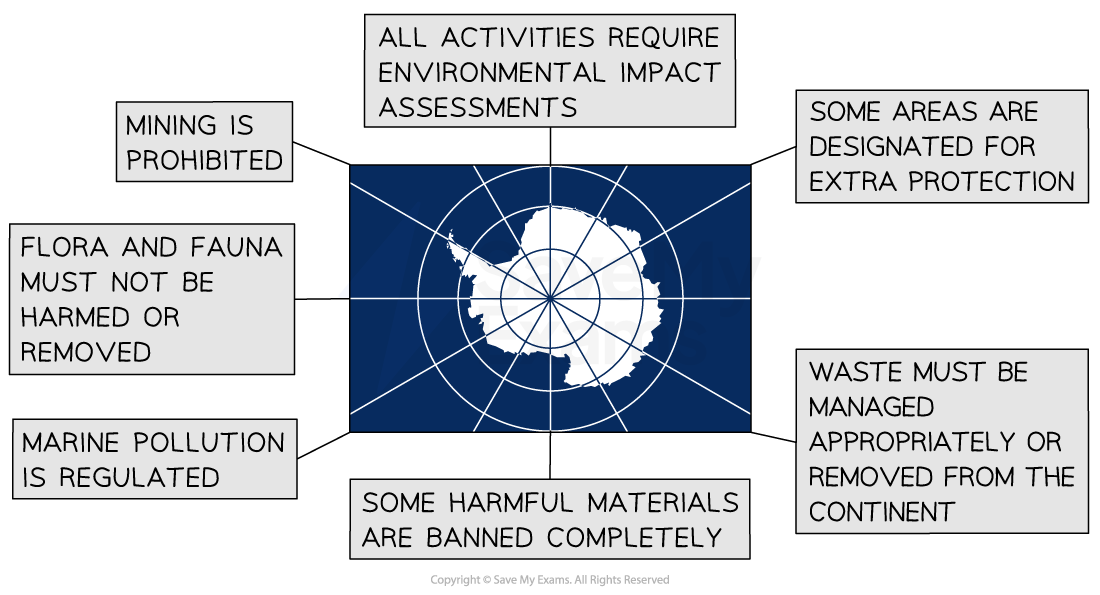Governance over Antarctica
- Antarctica is not a nation-state and does not have a government to manage it or make decisions
- However, several nations have made territorial claims to particular parts of the continent - Australia, Chile, Argentina, Norway, France, New Zealand and the UK
- Some of the claims overlap but none of them are universally recognised by the international community

Map of territorial claims in Antarctica
- If individual countries act in their own self-interest, rather than the interest of the global community, it will become damaged and depleted
- As a global common that is threatened by over-exploitation, Antarctica needs to be governed by global institutions to manage it sustainably




